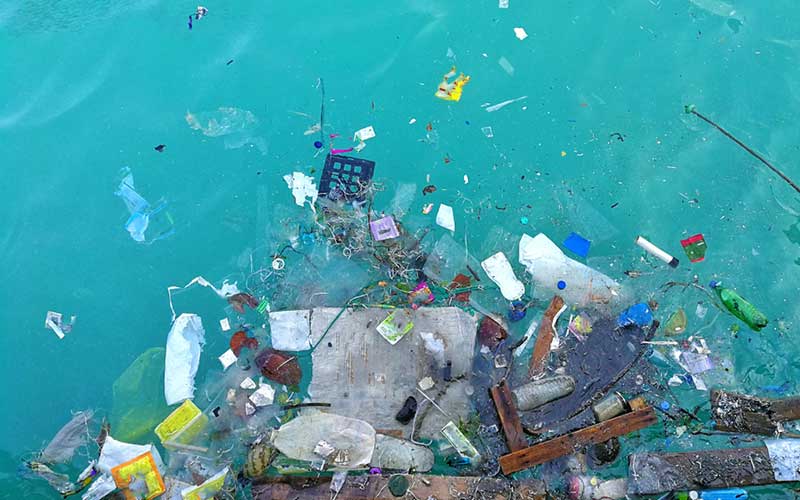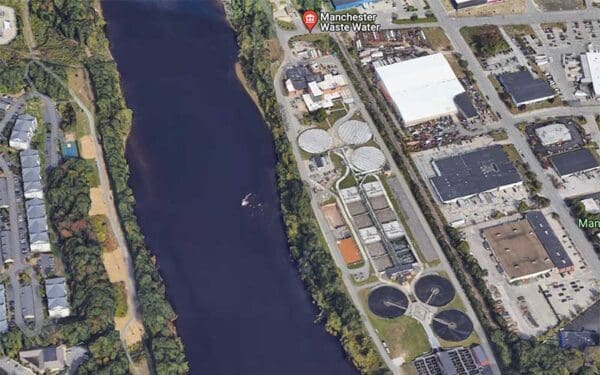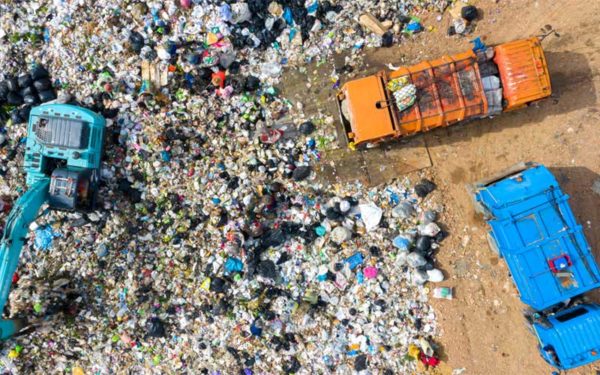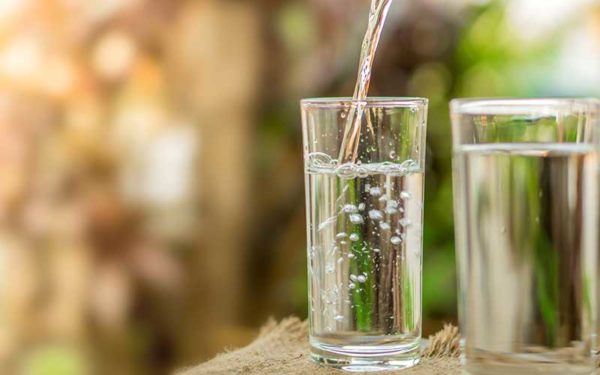
If Maine is importing plastic waste from abroad, it’s likely that other states are doing the same – adding more flame to the (dumpster) fire that is our trash crisis. Photo Credit: Shutterstock
On the morning of December 2, 2020, a ship containing roughly 200,000 pounds of plastic waste was completing the final leg of a long voyage across the Atlantic. It had embarked from Northern Ireland and was bound for Searsport, Maine, a small town tucked along the state’s picturesque mid-coast, about an hour south of Acadia National Park.
Why was plastic waste shipped 2,769 miles across the ocean to Maine?
Well, the Penobscot Energy Recovery Company’s waste incinerator in Orrington needed more trash to burn. That’s right – plastic waste was imported to feed a toxic beast. But not all of the plastic waste made it to Orrington. Instead, 5,000 pounds were lost to the Penobscot Bay.
This plastic spill was a tragedy – contributing to the 8 million tons of plastic that end up in our oceans each year, inevitably endangering wildlife. But that’s not the only issue we’re dealing with here. This spill has put a spotlight on the fact that the U.S. is importing trash from abroad – all to keep our polluting waste systems up and running.
The Plastic Waste Spill Heard ‘Round New England
As dock workers for Sprague Operating Resources unloaded the ship’s plastic waste on December 2, two bales containing 5,000 pounds of plastic became loose and spilled into the Penobscot Bay. Typically, the protocol for such an event requires notifying state regulators.
But that didn’t happen.
In fact, no one outside of Sprague knew about the spill. That is, until a week later when residents of nearby Sears Island noticed large amounts of plastic washing up along their shores. Concerned about the environmental impacts, residents contacted the state’s Department of Environmental Protection, which began investigating the matter immediately.
That’s when a clean-up effort was finally put into motion. Together, residents, Sprague contractors, and Environmental Protection staff combed the beaches of nearby islands to document and recover thousands of pieces of plastic waste. What’s more, the Department of Environmental Protection insisted that Sprague search for the two missing plastic bales. On December 23 – a full three weeks after the spill – professional divers recovered one of the bales, fully intact. The second bale – the one that started to fall apart as it was being unloaded from the ship – was never found.
Sprague Violates Water Pollution Control Law
The Department of Environmental Protection has since issued a Notice of Violation against Sprague. The violation alleges that the company failed to comply with Maine’s Water Pollution Control Law, which prohibits the release of any pollutant into state waters without a permit.
As a result, Sprague is required to develop procedures that reduce the risk of future spills and respond more effectively should any occur. It’s also expected that the company will be fined for violating the law.
While it’s good that regulators took urgent action to address this tragic spill, the events of December 2020 shine a spotlight on a much larger environmental catastrophe: the importing of plastic waste to Maine.
Maine – The Plastic Waste Importer
In 2020, the Penobscot Energy Recovery Company imported 10,321 tons of plastic waste from a company in Northern Ireland. Why? To use the plastic waste as backup fuel for when the incinerator runs low on trash. As the incinerator is privately owned, state regulators have little oversight as to where the facility gets the trash that it burns.
What’s more, Penobscot Energy may be getting paid to import this plastic waste. Here’s why: the United Kingdom, which includes Northern Ireland, taxes trash sent to a landfill. These fees are likely driving the decision to ship plastic waste thousands of miles across the ocean. According to Maine Public Radio, it’s far more expensive to landfill waste in the United Kingdom than to ship it to Maine.
Unfortunately, this practice is common: the United Kingdom exports roughly two-thirds of its plastic waste to other nations.
A Sobering Reminder of Why We Need to Embrace Zero Waste Solutions (Globally)
The plastic waste spill in the Penobscot Bay served as a wake-up call for Maine and much of New England. It left many people asking the same question: Why is the U.S. – which generates the most plastic waste globally – importing even more plastic waste?
This revelation reminds us of how flawed our current waste management systems are – not to mention the dire consequences they have on our health and the environment. (Keep in mind that, while the spill was tragic, the remaining 195,000 pounds of plastic did make it to the incinerator – and burning plastic releases toxic air pollution into neighboring communities.)
What’s more, if Maine is importing thousands of tons of plastic waste, it’s likely that other states are doing the same – adding more flame to the (dumpster) fire that is our trash crisis.
We may not have an immediate solution to stop the importing of plastic trash, but it does make a strategic transition to Zero Waste all the more necessary. And we have tried-and-true solutions at the ready to reduce waste and phase out our toxic trash systems.
You Can Help Maine Go Zero Waste
The Department of Environmental Protection and Sprague are currently negotiating a settlement agreement. If approved, the agreement would outline next steps for addressing the plastic waste spill and violations. When the draft is finalized, it will be posted for public comment on the Department’s website.
In the meantime, we must act now to stop the importing of trash. And that means moving towards a Zero Waste strategy that phases out our toxic waste systems (like incinerators), bans single-use plastics, and invests in systems that reuse products. You have the power to help us get there. Right now, the Maine legislature is considering several bills that will help reduce single-use plastics, including a ban on single-use disposable plastic water bottles, a ban on outdoor balloon releases, and a ban on plastic straws and splash sticks.
Contact your state elected officials today and urge them to support these bills.




